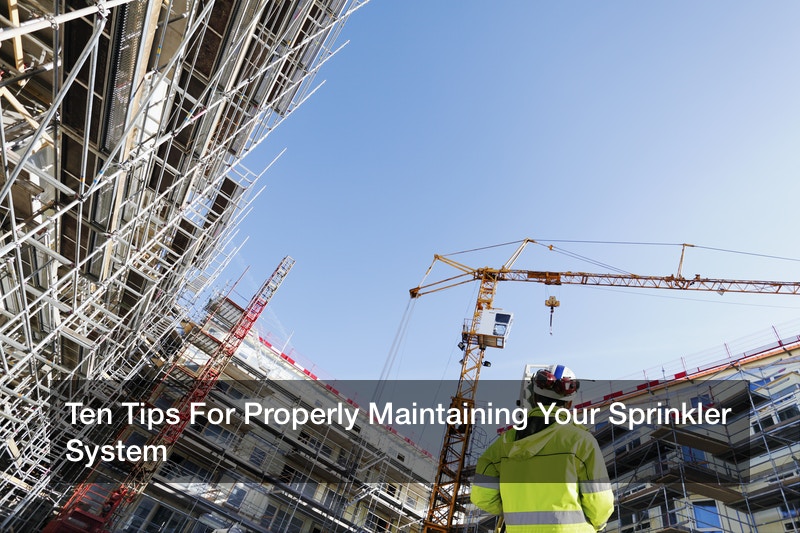
If there’s one thing Americans love doing to their homes—especially when the whether turns nice—it’s landscaping. A 2016 study by Houzz Landscaping and Garden Trends finds that about half of homeowners who upgrade their outdoor spaces will spend six or more hours a week doing so. As if that wasn’t enough, landscaping can add as much as 14% to the resale value of a home.
One of the most important parts of landscaping is lawn care and good lawn care means investing in a quality lawn sprinkler maintenance system. There’s no doubt of a sprinkler system’s importance, but without proper lawn sprinkler maintenance, you risk wasting a lot of water or overwatering your yard.
Since your lawn sprinkler system is usually operational during the spring, summer and fall, practicing good lawn sprinkler maintenance is essential. With that in mind, here are 10 tips for proper lawn sprinkler maintenance:
- Take note of watering times: No matter how big your lawn is, you need to know how long it takes to water it. For the health of your lawn, you need to know how long it takes your sprinkler system to water an inch of water. Usually it can be done in as little as 15 minutes. In order to test that, you can use tans on the lawn, run the sprinklers and then measure how much water ends up in a particular can.
- Adjust your water schedule: Your sprinklers might be operational for six or eight months of the year, but as the weather changes, so does the amount of water your lawn needs. Simply put, as it gets colder outside you need to lower the frequency of your watering schedule. You also need to be aware of how different parts of your property are positioned and how the sun his particular patches of your lawn.
- Do regular maintenance checks: Broken lines, leaks and heads positioned incorrectly can waste lots of water and lots of money. If you happen to notice one area of your lawn is overwatered and another area looks dry, you probably need to fix or redirect your sprinkler heads.
- Save water with rain sensors: Installing a rain or freeze sensor is going to save you lots of money. This shuts your sprinkles off when it rains or when the temperature outside hits freezing. This saves water and helps protect your lawn from damage.
- Replace or repair broken sprinkler heads: Take the time (maybe once a month) and look at your sprinkler heads. If you find broken ones, repair them or replace them.
- Clear all obstacles: If you find that your sprinkler system is spraying water onto something solid like a tree or a car, adjust the heads so the water gets on your lawn instead.
- Be wary of run-off: You’ll also want to check your sprinkler system for run-off. One of the negative side effects of not checking this is that certain areas get overwatered and overwatering can unintentionally release pollutants into drainage systems. You might also have puddles of standing water to deal with.
- Eliminate high pressure misting: If your lawn sprinkler system has high pressure misting, this can be harmful in the sense that water gets carried away or just clouds up around your lawn without laying any water down.
- Be careful about sloping: If your sprinkler system is set on a slope, you’re going to want to make sure your system is set on proper timing intervals.
- Have a contractor check your system: A sure-fire way to make sure everything is working properly is to hire a lawn care company or sprinkler repair contractor to check things out. Doing a check a few times during the summer will keep everything operating as it should.
By following the tips above, you can keep your lawn sprinkler system working properly during the year so that your lawn is looking pristine during the spring, summer and fall. If you need help making sure everything is functioning properly, especially with new sprinkling systems, call a contractor to come and check your system and give you advice on how best to use it.
